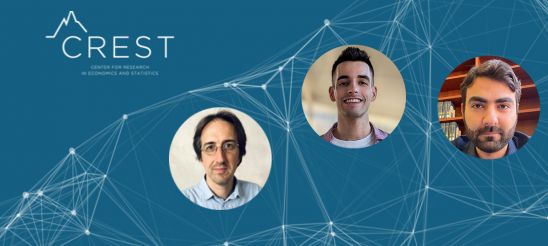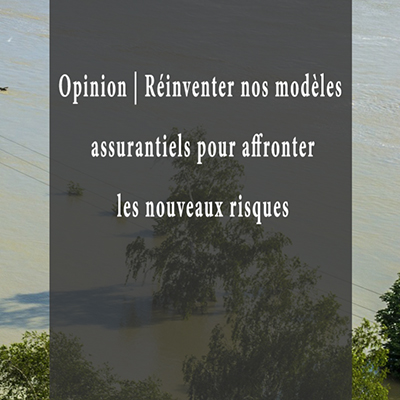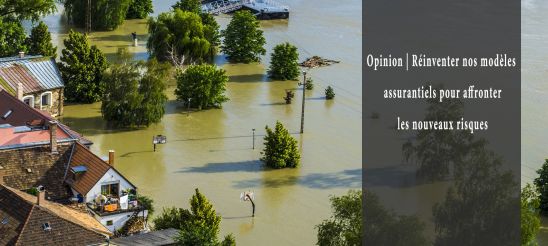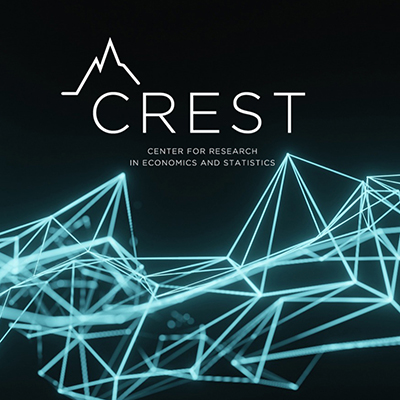Les dérèglements climatiques, l’effondrement de la biodiversité et l’épuisement des ressources naturelles mettent en évidence les limites du modèle économique actuel fondé sur une croissance intensive et une exploitation non durable des écosystèmes. Dans ce contexte, deux champs de recherche apparaissent aujourd’hui comme essentiels pour penser et mettre en œuvre la transition écologique : la finance durable et l’économie verte.
Ces deux approches interrogent en profondeur les fondements mêmes de la régulation économique, du rôle des marchés financiers et des trajectoires de développement.
La finance durable regroupe l’ensemble des pratiques financières qui intègrent des critères environnementaux, sociaux et de gouvernance (ESG) dans les décisions d’investissement. Son objectif est de soutenir des projets ayant un impact positif sur la société et la planète, tout en assurant une rentabilité à long terme.
L’économie verte, elle, désigne un modèle économique qui vise à réduire les risques environnementaux et la pénurie des ressources, tout en favorisant la croissance, l’emploi et le bien-être social. Elle repose notamment sur l’efficacité énergétique, la réduction des émissions de carbone, la préservation des écosystèmes et l’innovation technologique durable.
Dans cette interview croisée, qui met en lumière les articulations et les avancées, de ces deux disciplines, Olivier-David Zerbib, chercheur au CREST et professeur à l’ENSAE Paris, spécialiste de la finance durable et cotitulaire avec Peter Tankov de la chaire “Impact Investing” (Fondation ENSAE-ENSAI, Mirova), et Marion Leroutier, chercheuse au CREST et professeur à l’ENSAE Paris en économie environnementale et lauréate d’une chaire de recherche de la région Île-de-France pour son projet Cyclomob, partagent leurs travaux et expertises. Ils nous offrent des clés d’analyse pour mieux appréhender les dynamiques à l’œuvre dans la transformation des systèmes économiques et financiers face à l’urgence écologique, et ainsi accélérer la transition vers un modèle de développement bas carbone, inclusif et résilient, dans la perspective d’une économie juste et soutenable.
David, comment les investisseurs peuvent avoir de l’impact sur les entreprises pour les pousser à se verdir ?
Olivier-David Zerbib : Cette question est abordée par plusieurs récents travaux de recherche. A ce stade, certaines analyses font consensus. En premier lieu, il est important de réallouer le capital vers les entreprises à faible empreinte environnementale (ou “entreprises vertes”) et celles qui conditionnent l’activité des entreprises vertes. Sur le plan climatique, il s’agit, par exemple, des producteurs d’énergie renouvelable et des producteurs de panneaux solaires.
Cependant, désinvestir des entreprises ayant une forte empreinte environnementale (ou “entreprises brunes”) pour faire croître leur coût du capital et les pousser à se verdir est une stratégie qui ne semble être que modérément efficace (De Angelis, Tankov, Zerbib, 2023 ; Hartzmark and Shue, 2023).
Plutôt que se détourner des entreprises brunes, les investisseurs peuvent accroître leur allocation de capital dans ces dernières afin de s’engager auprès d’elles en tant qu’actionnaires. Cette stratégie, appelée “engagement actionnarial”, permet aux investisseurs d’exercer une pression sur les entreprises, dans un cadre privé (via des courriels, des appels, ou des entretiens avec la direction de l’entreprise) ou public (par exemple, en déposant des résolutions ou en votant en assemblée générale), conduisant à une inflexion significative de leurs pratiques (Broccardo, Hart, Zingales, 2022 ; van der Kroft, Palacios, Rigobon, Zheng, 2025).
En tout état de cause, que ce soit en matière d’allocation d’actifs ou d’engagement actionnarial, la coordination entre les investisseurs est essentielle. D’une part, afin d’optimiser leur impact sur le verdissement de l’économie, les investisseurs doivent allouer leur capital conditionnellement aux allocations choisies par l’ensemble des autres investisseurs (Green and Roth, 2025 ; Oehmke and Opp, 2025), en privilégiant notamment les entreprises – potentiellement “brunes” – dont les perspectives de verdissement sont les plus fortes. D’autre part, les engagements coordonnés dans le cadre de coalitions d’investisseurs permettent d’accroître la pression sur les entreprises (Dimson, Karakas, Li, 2015).
En quoi votre récent modèle* apporte un éclairage nouveau sur la question du greenwashing et de l’investissement durable ?
* Working paper : “Can investors curb greenwashing?” F. Cartellier, P. Tankov, O. D. Zerbib, 2024
Olivier-David Zerbib : Le greenwashing est la pratique selon laquelle une entreprise déclare qu’elle contribue à réduire son empreinte environnementale plus que ce qu’elle ne le fait en pratique. Cette pratique est largement répandue, à différents degrés : selon une étude des sites internet des entreprises européennes en 2021, la Commission Européenne a montré que, dans 42% des cas étudiés, les déclarations environnementales des entreprises étaient vraisemblablement fausses ou trompeuses. Dans un cadre juridique où le greenwashing n’est que peu, ou pas, pénalisé, nous montrons que les investisseurs ont un rôle important à jouer pour inciter les entreprises à réduire leur pratique du greenwashing (Cartellier, Tankov, Zerbib, 2024). En pénalisant dans leur fonction d’utilité les entreprises ayant fait l’objet d’une controverse sur le plan environnemental, et en accroissant de ce fait leur coût du capital, les investisseurs exercent un double effet bénéfique : ils incitent les entreprises à investir dans le verdissement de leurs pratiques (par exemple, la réduction de gaz à effets de serre) et à limiter leur communication environnementale trompeuse ou exagérée. Toutefois, lorsque l’asymétrie d’information entre investisseurs et entreprises est suffisamment élevée, les entreprises continuent de communiquer de manière trompeuse à un degré qui dépend de “l’espérance de pénalité” auxquelles elles s’exposent.
Que pensez-vous des labels ou notations ESG actuels ?
Olivier-David Zerbib : Au cours des cinq dernières années, l’arsenal européen de labellisation durable s’est significativement consolidé. En particulier, le règlement européen relatif à la transparence et à l’intégrité des activités de notation environnementale, sociale et de gouvernance (ESG), publié en décembre 2024, prévoit que les fournisseurs de notation ESG devront être autorisés et supervisés par l’Autorité européenne des marchés financiers et se conformer aux exigences de transparence, notamment en ce qui concerne leur méthodologie et leurs sources d’information. Ces règlementations poursuivent deux principaux objectifs : accroître la transparence sur les pratiques des entreprises et permettre à celles-ci d’envoyer un signal crédible de leur engagement sur les enjeux environnementaux.
Cette transparence est bénéfique pour l’ensemble des investisseurs. Tout d’abord, elle permet aux investisseurs non qualifiés et peu informés de réorienter leur épargne vers des fonds effectivement verts, selon la définition des labels. De surcroît, la réduction de l’incertitude sur les empreintes environnementales des entreprises permet aux investisseurs verts de mettre en place des actions plus prononcées (réallocation significative de capitaux, engagement actionnarial ambitieux), renforçant ainsi la pression qu’ils exercent sur les entreprises pour les pousser à se verdir (De Angelis, Tankov, Zerbib, 2023).
Pour autant, les labels et les notes ESG présentent, au moins, trois faiblesses majeures. La première faiblesse réside dans l’hétérogénéité méthodologique. En conséquence, la faible corrélation entre les notes ESG des principales agences de notation (Berg, Koelbel, Rigobon, 2022) alimente l’incertitude sur ces notes. La seconde tient au biais de couverture : parce que les études des analystes financiers se concentrent moins sur les petites et moyennes entreprises ainsi que les marchés émergents, leurs notes ESG sont généralement moins fiables. Enfin, nombre de labels se concentrent encore trop sur la gestion des risques financiers liés à l’environnement plutôt que sur la contribution des entreprises à la réduction de leur empreinte environnementale.
Les entreprises sont elles-mêmes sujettes à des coûts environnementaux. Marion quel est le coût de la pollution pour les entreprises et, David, comment peuvent-elles devenir actrices de la transition ?
Marion Leroutier : Clarifions que l’on parle ici de la pollution atmosphérique locale, qui affecte directement la santé des personnes exposées, et pas des émissions carbonées, qui contribuent au changement climatique mais n’ont pas d’effet sanitaire direct. Dans un article récent, nous investiguons le coût de l’exposition aux particules fines pour l’économie française en se concentrant sur la façon dont cette pollution affecte les ventes des entreprises (Leroutier et Ollivier, 2025). Nous avons en tête que respirer un air pollué peut nuire à la performance des salariés, qui peuvent tomber malade du fait de la pollution mais aussi voir leurs capacités productives des entreprises. Par ailleurs, la pollution de l’air peut aussi affecter les comportements de consommation des individus, soit parce qu’ils sont conscients des niveaux de pollution et renoncent à certaines sorties, soit parce qu’ils sont eux-mêmes malades à cause de la pollution et que leur budget est grevé par les dépenses médicales associées.
Nous utilisons des données riches portant sur 160 000 entreprises françaises et 400 000 salariés pour comprendre à quel point ces mécanismes sont à l’oeuvre dans le contexte français, où la pollution de l’air est bien plus faible qu’en Chine ou qu’en Inde, mais dépasse néanmoins régulièrement les seuils préconisés par l’Organisation mondiale de la santé (OMS). Nous estimons l’effet, pour une entreprise, d’être exposé un mois donné à un air particulièrement pollué sur ses ventes mensuelles au cours des mois suivants, et les mécanismes sous-jacents. Nous définissons l’exposition à la pollution de l’entreprise à partir des concentrations moyennes de pollution aux particules fines observées dans toutes les communes de France où l’entreprise possède des établissements.
Comme nous savons que la conjoncture économique locale peut elle-même affecter les concentrations de pollution aux particules fines, nous utilisons les variations de direction de vent observées dans chaque commune comme un événement fréquent qui affecte la pollution sans être directement corrélé à l’activité économique locale. Nous trouvons que lorsque les firmes sont exposées à un air 10% plus pollué, cela réduit leurs ventes les deux mois suivants à hauteur de 0,4%, avec des effets plus ou moins importants selon les secteurs d’activité. Cet effet peut sembler faible, mais lorsque l’on extrapole à l’économie entière, on trouve que sur la période 2009-2015, réduire la pollution aux particules fines de 25% pour atteindre les seuils préconisés par l’OMS aurait permis de générer 7 milliards d’euros de valeur ajoutée supplémentaire. Ce bénéfice économique lié à l’amélioration de la qualité de l’air est important : le montant est comparable à la valeur monétaire des bénéfices en matière de réduction de la mortalité. Or, bien souvent il n’est pas mentionné dans les analyses coût-bénéfices visant à décider de la pertinence ou non de rendre les régulations sur la qualité de l’air plus strictes. Notre travail suggère donc qu’il est crucial de tenir compte, au-delà des effets bien documentés de la pollution atmosphérique sur la santé, de ses effets négatifs sur l’économie.
Olivier-David Zerbib : Au-delà des motivations éthiques non pécuniaires, les incitations financières à se verdir sont fortes pour les entreprises. En effet, le coût environnemental de l’inaction est significativement plus élevé que celui de l’action, compte tenu non seulement des évènements climatiques extrêmes résultant du changement climatique, mais aussi de l’évolution de la réglementation environnementale, de l’accroissement du prix du carbone, des avancées technologiques sur le plan environnemental, et du renforcement des préférences pro environnementales des parties parties prenantes (induisant une pression de la part des consommateurs, des investisseurs, des employés et des partenaires dans la chaîne de valeur). De plus, des mécanismes de soutien à la transition écologique (subventions, prêts avantageux, etc.) incitent également les entreprises à verdir leurs modes de production, leur consommation d’énergie, et les biens qu’elles produisent.
Pour autant, de nombreuses entreprises ont freiné leur dynamique de verdissement, voire même, ont accru leur empreinte environnementale, sous l’effet conjugué de la remise en cause des bénéfices de l’ESG, notamment alimentée par une partie des élus républicains aux Etats-Unis, et de la recherche de profit de court terme. C’est pourquoi, au-delà des enjeux de flux de capitaux, se doter d’une réglementation environnementale ambitieuse et exigeante est une condition incontournable de l’implication de l’ensemble des entreprises dans la transition écologique.
Marion, dans vos recherches vous démontrer que la question du genre a un impact important sur l’empreinte carbone, pouvez-vous nous en dire plus ?
Marion Leroutier : En s’appuyant sur deux enquêtes renseignant les habitudes de consommation alimentaire et de transports d’un échantillon représentatif de la population française, nous trouvons que les femmes émettent en moyenne 26% de CO₂ en moins que les hommes à travers ces deux postes de consommation.
Nous avons en tête un certain nombre de facteurs qui peuvent expliquer ces écarts : les femmes sont moins souvent en emploi et ont des distances domicile travail plus courtes, ce qui peut influencer les écarts d’émission de transport ; les hommes ont besoin de manger plus, ce qui peut en partie expliquer les écarts d’émissions pour l’alimentation. Nous ajustons notre analyse pour ces différents facteurs afin d’évaluer dans quelle mesure ils permettent d’expliquer l’écart moyen de 26 %.
Or, après ajustement pour les écarts de quantités de nourriture consommée, de distances parcourues ou encore les facteurs socio-démographiques, il reste encore un écart. L’écart restant s’explique en grande partie par une consommation moindre de viande rouge et un usage réduit de la voiture. Ces deux comportements sont à la fois fortement émetteurs et associés à la masculinité traditionnelle. A l’inverse, on ne voit pas d’écart significatif lié à l’avion, un autre bien très polluant mais pas particulièrement associé à une norme de genre. Une partie de l’écart d’empreinte carbone entre hommes et femmes pourrait donc s’expliquer par des normes de genre. Des recherches supplémentaires sont nécessaires pour comprendre dans quelle mesure l’écart tiendrait aussi à une plus grande sensibilité des femmes au changement climatique, et à leur propension à adopter des comportements peu carbonés.
Un autre résultat important de notre étude est que la structure du foyer joue un grand rôle dans ces différences d’empreinte carbone. Si on compare les différences d’empreinte carbone femmes hommes parmi les célibataires et parmi les gens en couple, on voit moins de différence pour l’alimentation parmi les gens en couple, et plus pour les transports. Cela suggère que les personnes en couple hétérosexuel convergent dans leurs régimes alimentaires, les femmes augmentant leur empreinte pour se rapprocher de celle des hommes. A l’inverse, les personnes semblent adopter des comportements de transports divergents, ce qui est cohérent avec une spécialisation genrée dans les trajets du quotidien au sein des couples.
Cette recherche suggère que les politiques climatiques pourraient avoir un coût différencié selon le genre. Les femmes, ayant en moyenne une empreinte carbone plus faible, pourraient être moins affectées par ces mesures. Cela pourrait expliquer en partie pourquoi elles se déclarent plus souvent préoccupées par le changement climatique que les hommes, même à orientation politique donnée : il serait en quelque sorte plus facile car moins coûteux pour les femmes d’adopter un mode de vie compatible avec les trajectoires de baisse d’émissions dictées par l’impératif climatique.
La taxation du carbone paraît être intéressante mais est-ce envisageable au niveau industriel et de l’acceptabilité des citoyens ?
Marion Leroutier : La taxe carbone vise à inciter les consommateurs et les producteurs à se tourner vers des produits moins émetteurs de gaz à effet de serre, en renchérissant les produits les plus émetteurs, et ce à moindre coût. A ce jour, 31 pays dans le monde, dont la France, disposent d’une telle taxe, couvrant un ou plusieurs secteurs. Donc c’est faisable ! Nous disposons désormais d’études scientifiques robustes montrant que mettre en place une telle taxe permet, en effet, de baisser les émissions. Par exemple, la Suède est un des premiers pays à avoir mis en place une taxe carbone en 1991, avec un montant passant de 25€ par tonne de CO₂ en 1991 à 115€ par tonne de nos jours. On estime que cette taxe carbone a permis de baisser les émissions de CO₂ dans le secteur du transport de passager de près de 10% par rapport à une situation sans taxe, 15 ans après sa mise en œuvre (Anderson, 2019).
Dans un autre secteur, celui de l’électricité, une taxe carbone mise en œuvre au Royaume-Uni à hauteur de 25€ par tonne a encouragé un report massif de la production d’électricité à base de charbon vers le gaz, et dans une moindre mesure, les renouvelables, avec une baisse des émissions de CO₂ dans ce secteur de 22% par an entre 2013 et 2017. Aujourd’hui, la combinaison de cette taxe et d’autres mesures incitant à la production d’électricité décarbonée (soutien aux énergies renouvelables, entre autre), font que le Royaume-Uni, pays de la Révolution industrielle, a définitivement fermé sa dernière centrale à charbon en 2024.
La question n’est donc pas de savoir si une taxe carbone, en général, est acceptable ou efficace, mais si et à quelles conditions elle peut augmenter pour inciter à des baisses d’émissions encore plus conséquentes. L’épisode des Gilets Jaunes en France en 2018-2019, où l’annonce d’une augmentation de la taxe carbone prévue par la loi a suscité une vive opposition, a marqué les esprits et suscité de nombreuses recherches sur les déterminants de l’acceptabilité des politiques climatiques et notamment de la taxe carbone. Il apparaît, par exemple, que les citoyens soutiennent davantage la taxe carbone si les recettes de la taxe sont utilisées pour financer des investissements verts, comme des infrastructures de transport public ou les énergies renouvelables (Dechezleprêtre et al, 2025). De façon plus générale, les perceptions des citoyens sur l’efficacité et l’équité associés aux politiques climatiques sont deux déterminants clés de leur acceptabilité. Il est donc important pour les chercheurs comme pour les gouvernements d’informer les citoyens sur l’effet attendu de ces mesures sur les émissions, ainsi que sur la répartition des coûts et des bénéfices entre différents groupes de population (urbains vs ruraux, niveau de revenu, etc.).
Quels sont les points communs, les recoupements entre l’économie verte et la finance verte ?
Olivier-David Zerbib : La finance, qui est imbriquée dans la science économique, s’intéresse aux flux de capitaux. La finance environnementale, en particulier, se concentre sur deux grandes questions.
Comment les risques environnementaux se traduisent-ils en risques économiques et financiers ?
Quelles stratégies les investisseurs peuvent-ils mettre en œuvre pour pousser les entreprises à réduire leur empreinte environnementale ?
En recoupant un champ de recherche plus vaste que celui de la finance environnementale, l’économie environnementale peut traiter de sujets très divers tels que les effets des politiques publiques environnementales, l’impact du commerce international sur les émissions de gaz à effet de serre, ou encore l’analyse des pratiques environnementales des entreprises à l’aune des contraintes auxquelles elles sont exposées.
Marion Leroutier : En effet, si la mobilisation de ressources financières est cruciale pour la transition vers une économie soutenable, l’économie de l’environnement [NB : le terme correct en français pour la discipline académique] à un objet plus large que l’étude des flux financiers et des investissements des entreprises. Elle s’intéresse aux différents agents économiques que sont non seulement les entreprises, mais aussi les consommateurs et les gouvernements. Elle cherche à comprendre quel mix de mesures de politiques publiques – qui peuvent prendre diverses formes comme les incitations financières, de politiques de sensibilisation, d’investissements directs dans des infrastructures publiques – permettrait de réaliser la transition verte de la façon la plus efficace et juste possible.
Concernant les risques environnementaux, ils sont étudiés en économie sous un angle multi-dimensionnel et pas seulement du point de vue des risques financiers qu’ils suscitent. Par exemple, on va essayer de comprendre l’effet d’une catastrophe climatique comme une inondation sur différentes dimensions du bien-être humain et à différentes temporalités : à court terme, quel est l’effet sur la mortalité ? Les pays les plus pauvres sont-ils plus vulnérables de ce point de vue ? A moyen terme, les résidents vont-ils quitter la région pour échapper à de futurs inondations ? En se souvenant que le changement climatique va entraîner une hausse de ces évènements climatiques extrêmes, une question cruciale est quel type de politiques publiques peut permettre de réduire la vulnérabilité des populations à ce type de catastrophe ?
Marion, vous êtes lauréate d’une chaire de recherche de la région Île-de-France pour votre projet Cyclomob : vers une mobilité urbaine durable, et vous David, vous dirigez la chaire Impact Investing, qui vise à maximiser l’impact positif de l’investissement sur l’environnement et la société en partenariat stratégique avec Mirova. En quoi cet engagement scientifique permet de proposer de réelles avancées politiques et industrielles pour l’environnement durable ?
Marion Leroutier : Dans le cadre de la chaire Cyclomob, nous investiguons avec mes coauteurs les leviers permettant de faire advenir une mobilité urbaine plus durable, en se concentrant sur les mobilités actives décarbonées comme le vélo et la marche. Dans un article précédent, nous montrons qu’en Île-de-France, 25% des automobilistes gagneraient du temps en faisant une partie de leurs trajets en vélo électrique (Leroutier & Quirion, 2023). Ce potentiel contraste avec le fait qu’encore en 2018, moins de 5% des résidents d’Île-de-France utilisaient le vélo pour les trajets du quotidien. Un des projets de la chaire s’intéresse à l’effet du déploiement d’infrastructures cyclables sécurisées, qu’on a vues ces dernières années dans de nombreuses métropoles françaises, sur la part de personnes se déplaçant en vélo et sur les nuisances environnementales typiquement associées à la voiture comme la pollution de l’air. Nos résultats seront directement utiles aux collectivités locales qui se demandent quels projets d’infrastructure sont les plus prometteurs pour rendre nos villes plus durables.
Olivier-David Zerbib : Les travaux menés dans le cadre de la chaire Impact Investing portent sur l’efficacité de l’engagement actionnarial en tant que levier de transformation des modèles d’affaires des entreprises ainsi que sur l’investissement à impact au-delà des enjeux climatiques, avec un focus sur la biodiversité. Les résultats des travaux sont rendus publics et mis à la disposition de tous. Cependant, ils intéressent en particulier les investisseurs institutionnels tels que Mirova. Un des objectifs de notre engagement scientifique est de mettre en évidence des leviers d’action opérationnels dont les investisseurs institutionnels pourraient s’emparer pour renforcer et accélérer la dynamique de transition écologique des entreprises.
Marion Leroutier
Références :
Leroutier, M. (2022). Carbon pricing and power sector decarbonization: Evidence from the UK. Journal of Environmental Economics and Management, 111, 102580.
Leroutier, M & Quirion, P. 2023. Tackling Car Emissions in Urban Areas: Shift, Avoid, Improve. Ecological Economics, Volume 213, November 2023.
Leroutier, M & Ollivier, H. 2025. The Cost of Air pollution for Workers and Firms. CREST Working Paper, March 2025
Berland O, Leroutier M . 2025. The gender gap in carbon footprints: determinants and implications. Grantham Research Institute on Climate Change and the Environment Working Paper 424. London: London School of Economics and Political Science
Andersson, J. J. 2019. Carbon Taxes and CO2 Emissions: Sweden as a Case Study. American Economic Journal: Economic Policy, 11(4), 1–30.
Dechezleprêtre, A., Fabre, A., Kruse, T., Planterose, B., Sanchez Chico, A., & Stantcheva, S. (2025). Fighting Climate Change: International Attitudes toward Climate Policies. Am. Econ. Rev., 115(4), 1258–1300.
Olivier David Zerbib
Références :
Berg, F., Kölbel, J. F., and Rigobon, R., 2022, Aggregate Confusion: The Divergence of ESG Ratings, Review of Finance 26(6):1315–1344.
Broccardo, E., Hart, O., Zingales, L., 2022. Exit versus Voice. Journal of Political Economy 130, 3101–3145.
Cartellier, F., Tankov, P., Zerbib, O. D., 2024. Can investors curb greenwashing? Working Paper.
De Angelis, T., Tankov, P., Zerbib, O. D., 2023. Climate impact investing. Management Science 69, 7669–7692.
Dimson, E., Karaka¸s, O., Li, X., 2015. Active ownership. Review of Financial Studies 28, 3225–3268.
Green, D., Roth, B., 2025. The allocation of socially responsible capital. Journal of Finance 80 (3):755–781.
Hartzmark, S., Shue, K., 2023. Counterproductive sustainable investing: The impact elasticity of brown and green firms. Working Paper.
Oehmke, M., Opp, M. M., 2025. A Theory of Socially Responsible Investment. The Review of Economic Studies 92, 1193–1225.
van der Kroft, B., Palacios, J., Rigobon, R., Zheng, S., 2025. Timing sustainable shareholder proposals in real asset investments. Working Paper.
Can Green Finance Weather the Trump Storm?
27/06/2025
Peter Tankov & David Zerbib for Polytechnique Insights
Thomas Peyrat publishes two new advances in applied probability
Thomas Peyrat, PhD student at CREST-GENES and at Exiom Partners, in Finance-Insurance, has just reached a major milestone in his doctoral journey with the publication of his first paper in ESAIM: Probability and Statistics, as well as the release of a new working paper.
These two works, conducted in collaboration with his advisors Caroline Hillairet (ENSAE Paris – CREST) and Anthony Réveillac (INSA Toulouse – Toulouse Mathematics Institute), are part of his PhD carried out in partnership with Exiom Partners, a consulting firm actively involved in applied research.
🔹 A new Clark–Ocone formula for Poisson functionals
The first paper, titled A non-compensated Clark–Ocone formula for Poisson functionals, develops a decomposition formula for integrable Poisson functionals. This non-compensated version offers several technical advantages compared to the classical compensated approach, paving the way for new potential applications.
👉 Read the article in ESAIM: Probability and Statistics
🔹 Multivariate self-exciting processes with dependencies
The second work, currently available as a preprint, introduces a new class of multivariate self-exciting processes capable of modeling dependencies between event intensities and values. This modeling framework is particularly promising in insurance applications, for instance to capture links between claim frequency and severity.
👉 Read the preprint
We warmly congratulate Thomas for these important contributions, which highlight the strength of collaboration between academic research and industry, as well as the quality of doctoral training at CREST.
Beyond the PhD – CREST Series #3: Insights from PhD Supervisors
At CREST, we aim to showcase the diverse career trajectories and perspectives of researchers who have navigated the path beyond their PhD. The “Beyond the PhD” series provides an opportunity to hear directly from experts across different fields about their experiences, challenges, and insights on life as a researcher.
For this third installment, we are featuring four distinguished researchers: Benoit Schmutz (Ecole polytechnique, IP Paris), Caroline Hillairet (GENES, ENSAE Paris, IP Paris), Paola Tubaro (CNRS, ENSAE Paris, IP Paris), and Nicolas Chopin (GENES, ENSAE Paris, IP Paris). Each of them shares their thoughts on the PhD journey, its impact on their careers, and the broader role of research in society.
Why pursue a PhD at CREST?
A PhD is much more than just academic training—it’s about developing a mindset that allows you to explore complex questions, think critically, and push the boundaries of knowledge. Our researchers highlight three key aspects that define the PhD experience at CREST:
🔹 An Environment for Intellectual Growth – A PhD is a journey of constant learning. You will develop a structured way of thinking, gain expertise in your field, and learn how to navigate uncertainty in research.
🔹 Opportunities for Interdisciplinary Work – At CREST, you will interact with researchers across economics, sociology, finance, and statistics, allowing for a dynamic and stimulating research experience.
🔹 A Supportive and Collaborative Research Culture – While research can be challenging, you will not be alone. Engaging with peers, supervisors, and the broader academic community is essential, and at CREST, we value collaboration as much as independence.
Watch the introduction to this series below.
Meet the Researchers
Each researcher featured in this edition brings a unique perspective on the PhD experience and beyond.
Benoit Schmutz – From PhD to Applied Economics
Benoit discusses how a PhD equips students with essential analytical skills, particularly in understanding labor markets and urban economics. He emphasizes the importance of rigor and adaptability in research.
🎥 Watch Benoit’s insights
Caroline Hillairet – Mathematics, Finance, and Research Opportunities
Caroline shares her journey from mathematics to finance, highlighting how a PhD opens doors to interdisciplinary research and the application of theoretical models to real-world problems.
🎥 Watch Caroline’s insights
Paola Tubaro – Networks, Society, and the Role of Research
Paola discusses how her research in computational social sciences evolved, emphasizing the collaborative nature of research and the impact of digital transformations on society.
🎥 Watch Paola’s insights
Nicolas Chopin – The Art of Asking the Right Questions
Nicolas talks about the role of uncertainty in research, how a PhD teaches resilience, and the impact of Bayesian statistics in various domains, including machine learning.
🎥 Watch Nicolas’s insights
Advice for Future PhD Students
If you are considering applying for a PhD at CREST, here are a few key takeaways from our researchers:
✅ Stay curious – Research is about exploration, so embrace new ideas and unexpected results.
✅ Engage with the academic community – Attend conferences, collaborate with other researchers, and actively participate in lab activities.
✅ Be patient and persistent – Progress in research takes time. Learning how to overcome obstacles is part of the PhD experience.
✅ Think beyond the thesis – Your PhD is not just about writing a dissertation; it’s about developing a way of thinking that will shape your career.
Check out our two previous series of Beyond the PhD on the CREST YouTube Channel:
Beyond the PhD – Series 1 – a video centered on the International Job Market from Economics PhD students.
Beyond the PhD – Series 2 – a series of videos from our PhD students on the definition of what is a PhD.
Peter Tankov’s Lecture at the IMF: The Financial and Environmental Impacts of Green Investing
Bridging Theory and Practice in Sustainable Finance
Last week, Peter Tankov, professor of quantitative finance at CREST-ENSAE Paris, delivered a six-hour class at the International Monetary Fund (IMF) Institute for Capacity Development. The training, aimed at economists working in various departments of the IMF, explored the financial and environmental impacts of green investing, a topic that is increasingly central to global economic policies.
Tankov’s session addressed both the theoretical foundations and practical applications of sustainable investment strategies, emphasizing their dual role in shaping financial markets and environmental outcomes.
Understanding Green Investing: Financial and Environmental Implications
The class was structured around two core dimensions:
- Financial Impact of Green Investing
Tankov analyzed how the increasing participation of green investors influences asset pricing and portfolio returns. The discussion covered key topics such as:
- The differential returns between green and brown assets
- ESG rating uncertainty and its influence on investment decisions
- The potential for green bubbles, where speculative enthusiasm drives asset prices beyond fundamentals
- The role of transition risks, particularly as regulatory frameworks evolve
- Environmental Impact of Green Investing
Beyond financial metrics, the session explored the real-world environmental effects of sustainable investments. Topics included:
- The mechanisms of impact investing—how investors can generate measurable environmental benefits alongside financial returns
- The effectiveness of shareholder engagement in influencing corporate sustainability practices
- How price signaling affects both the cost of capital for firms and their environmental performance
The reasons and consequences of the recent ESG backlash, which originated in the US but may spill over to Europe, were also discussed.
As a key economic policy advisor to governments and central banks worldwide, the IMF is well aware of the importance of accounting for climate risks—both those arising from the physical impacts of climate change and those resulting from the profound economic transformations it triggers, including the shift towards greener investment processes. Academic collaborations such as this one enable the IMF to further develop its in-house expertise on these critical issues.
These are challenging times for the practice of green investing, but from a research perspective, the past five years have been pivotal. We now have a much deeper understanding of its mechanics and impact—not just empirically but also through theoretical models. As governments relax reporting obligations and financial institutions engage in green-hushing, the role of academia and NGOs in driving progress has never been more crucial.
Welcome to the New Researchers Joining CREST in 2025
CREST is excited to welcome three new researchers who arrived in January 2025. Each brings unique expertise and a strong academic background, further strengthening our multidisciplinary research environment.
Jean-François Chassagneux

Position: Full Professor in Mathematics (ENSAE Paris)
Research Interests: : Mathematical finance & numerical probability: partial hedging and non-linear pricing, quantitative methods for transition risks and carbon markets, switching problems and reflected BSDEs, numerical methods for mean-field systems.
Previous Position: Full Professor in Applied Mathematics, Université Paris Cité & LPSM
Learn More: Jean-François Chassagneux’s personal webpage
Javier Gonzalez-Delgado

Position: Assistant Professor in Statistics (ENSAI)
Research Interests: Selective inference, hypothesis testing, clustering, and statistical methods for real-world problems in biology, particularly structural biology and genetics.
Previous Position: Postdoctoral researcher, Human Genetics, McGill University
Learn More: Javier Gonzalez-Delgado’s personal webpage
“After a period away from here, I am looking forward to reconnect with the French research community and develop new connections with scientists at CREST!”
Mohammadreza Mousavi Kalan

Position: Assistant Professor in Statistics (ENSAI)
Research Interests: Statistical machine learning, Transfer learning, Domain adaptation, Outlier detection, Optimization Theory, Distrusted Computing.
Previous Position: Postdoctoral researcher, Columbia University
“I am excited to join CREST as an Assistant Professor. CREST’s excellent research reputation makes it the perfect place to continue my academic journey. With renowned researchers at CREST, this opens up amazing opportunities for meaningful collaborations that will let me contribute to and grow with this vibrant community. I look forward to impactful research and close collaboration with such inspiring colleagues.”
We are delighted to welcome Jean-François, Javier, and Mohammadreza to the CREST. Their expertise and dedication to advancing research will undoubtedly contribute to the lab’s excellence. Stay tuned for updates on their research and collaborations!
Une tribune d’Olivier Lopez et Pierre Vaysse pour le journal Les Echos
Une tribune d’Olivier Lopez et Pierre Vaysse pour le journal Les Echos
6 janv. 2025
Une tribune d’Olivier Lopez et Pierre Vaysse pour le journal Les Echos
Une tribune d’Olivier Lopez et Pierre Vaysse pour le journal Les Echos
6 janv. 2025
2024 CREST Highlights
As 2024 draws to a close, CREST reflects on a year filled with groundbreaking research, prestigious awards, and impactful initiatives. Here’s a look back at our key achievements.
📊 Research Breakthroughs: 93 Articles Published
CREST published 93 articles so far, with 62% appearing in Q1 journals. These works reflect the breadth and depth of research conducted across CREST’s clusters. Here are some highlights:
Information Technology and Returns to Scale by Danial Lashkari, Arthur Bauer, and Jocely Boussard explores how technological advancements influence economies of scale, shedding light on contemporary production practices, in American Economic Review
Locus of Control and the Preference for Agency by Marco Caliendo, Deborah Cobb-Clark, Juliana Silva-Goncalves, and Arne Uhlendorff investigates how personal traits shape individuals’ economic decisions, providing a deeper understanding of agency in economic behavior, in European Economic Review.
Global Mobile Inventors by Dany Bahar, Prithwiraj Choudhury, Ernest Miguelez, and Sara Signorelli examines the migration patterns of innovative talent worldwide, offering new perspectives on innovation dynamics, in Journal of Development Economics.
Testing and Relaxing the Exclusion Restriction in the Control Function Approach by Xavier D’Haultfoeuille, Stefan Hordelein, and Yuya Sasaki provides advanced methodologies to enhance econometric analysis, in Journal of Econometrics.
Are Economists’ Preferences Psychologists’ Personality Traits? A Structural Approach by Tomas Jagelka bridges economics and psychology, exploring how personality traits influence economic preferences, in Journal of Political Economy.
Autoregressive Conditional Betas by Francisco Blasques, Christian Francq, and Sébastien Laurent provides innovative methods to measure financial risk, critical for investment strategies, in Journal of Econometrics.
Model-based vs. Agnostic Methods for the Prediction of Time-Varying Covariance Matrices by Jean-David Fermanian, Benjamin Poignard, and Panos Xidonas compares methodologies for improving financial predictions under uncertainty, in Annals of Operations Research.
Corporate Debt Value Under Transition Scenario Uncertainty by Theo Le Guedenal and Peter Tankov addresses the valuation of corporate debt amid environmental and regulatory changes, in Mathematical Finance.
Semiparametric Copula Models Applied to the Decomposition of Claim Amounts by Sébastien Farkas and Olivier Lopez develops new actuarial techniques to better understand insurance claims, in Scandinavian Actuarial Journal.
On the Chaotic Expansion for Counting Processes by Caroline Hillairet and Anthony Réveillac advances mathematical models with applications in finance and beyond, in Electronic Journal of Probability.
Russia’s Invasion of Ukraine and Perceived Intergenerational Mobility in Europe by Alexi Gugushvili and Patrick Präg examines how geopolitical shocks affect societal perceptions and mobility, in British Journal of Sociology.
The Total Effect of Social Origins on Educational Attainment: Meta-analysis of Sibling Correlations From 18 Countries by Lewis R. Anderson, Patrick Präg, Evelina T. Akimova, and Christiaan Monden provides a meta-analysis of sibling correlations, offering fresh insights into education and inequality, in Demography.
Context Matters When Evacuating Large Cities: Shifting the Focus from Individual Characteristics to Location and Social Vulnerability by Samuel Rufat, Emeline Comby, Serge Lhomme, and Victor Santoni shifts the focus from individual characteristics to social vulnerabilities during urban evacuations, in Environmental Science and Policy.
Gender Equality for Whom? The Changing College Education Gradients of the Division of Paid Work and Housework Among US Couples, 1968-2019 by Léa Pessin explores shifting dynamics in gendered divisions of labor among U.S. couples over the decades, in Social Forces.
The Augmented Social Scientist: Using Sequential Transfer Learning to Annotate Millions of Texts with Human-Level Accuracy by Salomé Do, Etienne Ollion, and Rubing Shen highlights how AI tools can assist in large-scale sociological research with human-level accuracy, in Sociological Methods and Research.
Investigating Swimming Technical Skills by a Double Partition Clustering of Multivariate Functional Data Allowing for Dimension Selection, by Antoine Bouvet, Salima El Kolei, Matthieu Marbac, in Annals of Applied Statistics.
Full-model estimation for non-parametric multivariate finite mixture models, by Marie Du Roy de Chaumaray, Matthieu Marbac, in Journal of the Royal Statistical Society. Series B: Statistical Methodology
Tail Inverse Regression: Dimension Reduction for Prediction of Extremes, by Anass Aghbalou, François Portier, Anne Sabourin, Chen Zhou, in Bernoulli.
Proxy-analysis of the genetics of cognitive decline in Parkinson’s disease through polygenic scores, by Johann Faouzi, Manuela Tan, Fanny Casse, Suzanne Lesage, Christelle Tesson, Alexis Brice, Graziella Mangone, Louise-Laure Mariani, Hirotaka Iwaki, Olivier Colliot, Lasse Pihlstrom, Jean-Christophe Corvol, in NPJ Parkinson’s Disease.
Benign Overfitting and Adaptive Nonparametric Regression, by Julien Chhor, Suzanne Sigalla, Alexandre Tsybakov, in Probability Theory and Related Fields.
🎯 Discover more CREST publications on our HAL webpage.
🌍 Impactful Events and Conferences
CREST actively participated in and hosted events that fostered collaboration and knowledge exchange:
- European Parliament Panel: Sociologist Paola Tubaro led a pivotal discussion on alternatives to platform-driven gig economies, bringing sociological insights to policy discussions.
- Publication by the National Courts of Audit: Barometer of Fiscal and Social Contributions in France – Second Edition 2023.
- NeurIPS 2024: CREST had a strong presence with 19 papers selected, showcasing cutting-edge work in artificial intelligence and neural information processing.
- Cyber-Risk Conference Cyr2fi: Co-organized with École Polytechnique, this event highlighted the interdisciplinary approaches needed to address growing cybersecurity threats.
- Nobel Prize Lecture: Researchers and PhDs of IP Paris Economics Department celebrated the 2023 Nobel Prize in Economics, reinforcing academic excellence.
📅 Join future events: Visit our calendar.
2024 brought two new chairs at CREST:
- Cyclomob by Marion Leroutier highlights research into sustainable urban mobility, funded through a regional chair.
- Impact Investing Chair by Olivier-David Zerbib to maximize the positive impact of the investment on the environment and society.
🏆 Awards and Recognitions
2024 was a year of accolades for CREST:
- 5 ERC Grants for CREST in 2024: Yves Le Yaouanq has recently joined the 2024 group of ERC grantees, which already includes Samuel Rufat, Olivier Gossner, Julien Combe, and Marion Goussé.
- CNRS Bronze Medal: Clément Malgouyres for contributions to labor economics.
- L’Oréal-UNESCO Young Talent: Solenne Gaucher recognized for her sustainable development work.
- EALE Young Labor Economist Prize: Federica Meluzzi for innovative labor market studies.
- 2024 AEJ Best Paper Awards in Macroeconomics: Giovanni Ricco wins the award for his paper “The transmission of Monetary Policy Shocks” with Silvia Miranda-Agrippino.
- Louis Bachelier Prize: Peter Tankov honored for achievements in mathematical finance.
In 2024, some CREST researchers were also appointed in diverse institutions:
- The Economic Journal: Roland Rathelot was appointed Managing Editor.
- The Econometric Society: Olivier Gossner was named Fellow of the Econometric Society.
- French Ministry of Economics: Franck Malherbet appointed as a member of the Expert Group on the Minimum Growth Wage.
📚 Books and Projects
This year, CREST researchers authored several impactful books:
- Ce qui échappe à l’intelligence artificielle, edited by François Levin and Étienne Ollion, critically examines the limits of AI in understanding human complexity.
- Peut-on être heureux de payer des impôts ? by Pierre Boyer engages readers in a thought-provoking discussion on the role of taxation in society.
- Introduction aux Sciences Économiques, cours de première année à l’Ecole polytechnique by Olivier Gossner et al. serves as an accessible entry point for students into economic principles.
- Une étrange victoire, l’extrême droite contre la politique by Michaël Foessel and Étienne Ollion explores the relationship between politics and far-right ideologies.
2024 was also marked by the second series of the Beyond the PhD series, a series of videos dedicated to the PhD course. In 2024, we were able to explore the evolution of the PhD definition through students currently in different years of their studies in all CREST research clusters.
📣 Media and Outreach
CREST researchers were featured in:
- 80+ media outlets, including Le Monde, Le Nouvel Obs, Les Échos, University World News, BBC News Brazil, France Culture, Libération, Le Cercles des Économistes, Médiapart, AOC…
- 30+ op-eds and articles, shaping public discourse.
🎙️ Featured Interview: Pauline Rossi discusses economic inequalities in Le Cercle des Économistes. Listen here.
CREST celebrates a year of remarkable achievements and meaningful contributions to research, society, and global conversations. From groundbreaking publications to prestigious awards and impactful events, our community has continued to push boundaries and inspire innovation.
Looking ahead to 2025, we remain committed to fostering interdisciplinary research, addressing societal challenges, and nurturing a collaborative environment for researchers and students.
2024 CREST Highlights
As 2024 draws to a close, CREST reflects on a year filled with groundbreaking research, prestigious awards, and impactful initiatives. Here’s a look back at our key achievements.
📊 Research Breakthroughs: 93 Articles Published
CREST published 93 articles so far, with 62% appearing in Q1 journals. These works reflect the breadth and depth of research conducted across CREST’s clusters. Here are some highlights:
Information Technology and Returns to Scale by Danial Lashkari, Arthur Bauer, and Jocely Boussard explores how technological advancements influence economies of scale, shedding light on contemporary production practices, in American Economic Review
Locus of Control and the Preference for Agency by Marco Caliendo, Deborah Cobb-Clark, Juliana Silva-Goncalves, and Arne Uhlendorff investigates how personal traits shape individuals’ economic decisions, providing a deeper understanding of agency in economic behavior, in European Economic Review.
Global Mobile Inventors by Dany Bahar, Prithwiraj Choudhury, Ernest Miguelez, and Sara Signorelli examines the migration patterns of innovative talent worldwide, offering new perspectives on innovation dynamics, in Journal of Development Economics.
Testing and Relaxing the Exclusion Restriction in the Control Function Approach by Xavier D’Haultfoeuille, Stefan Hordelein, and Yuya Sasaki provides advanced methodologies to enhance econometric analysis, in Journal of Econometrics.
Are Economists’ Preferences Psychologists’ Personality Traits? A Structural Approach by Tomas Jagelka bridges economics and psychology, exploring how personality traits influence economic preferences, in Journal of Political Economy.
Autoregressive Conditional Betas by Francisco Blasques, Christian Francq, and Sébastien Laurent provides innovative methods to measure financial risk, critical for investment strategies, in Journal of Econometrics.
Model-based vs. Agnostic Methods for the Prediction of Time-Varying Covariance Matrices by Jean-David Fermanian, Benjamin Poignard, and Panos Xidonas compares methodologies for improving financial predictions under uncertainty, in Annals of Operations Research.
Corporate Debt Value Under Transition Scenario Uncertainty by Theo Le Guedenal and Peter Tankov addresses the valuation of corporate debt amid environmental and regulatory changes, in Mathematical Finance.
Semiparametric Copula Models Applied to the Decomposition of Claim Amounts by Sébastien Farkas and Olivier Lopez develops new actuarial techniques to better understand insurance claims, in Scandinavian Actuarial Journal.
On the Chaotic Expansion for Counting Processes by Caroline Hillairet and Anthony Réveillac advances mathematical models with applications in finance and beyond, in Electronic Journal of Probability.
Russia’s Invasion of Ukraine and Perceived Intergenerational Mobility in Europe by Alexi Gugushvili and Patrick Präg examines how geopolitical shocks affect societal perceptions and mobility, in British Journal of Sociology.
The Total Effect of Social Origins on Educational Attainment: Meta-analysis of Sibling Correlations From 18 Countries by Lewis R. Anderson, Patrick Präg, Evelina T. Akimova, and Christiaan Monden provides a meta-analysis of sibling correlations, offering fresh insights into education and inequality, in Demography.
Context Matters When Evacuating Large Cities: Shifting the Focus from Individual Characteristics to Location and Social Vulnerability by Samuel Rufat, Emeline Comby, Serge Lhomme, and Victor Santoni shifts the focus from individual characteristics to social vulnerabilities during urban evacuations, in Environmental Science and Policy.
Gender Equality for Whom? The Changing College Education Gradients of the Division of Paid Work and Housework Among US Couples, 1968-2019 by Léa Pessin explores shifting dynamics in gendered divisions of labor among U.S. couples over the decades, in Social Forces.
The Augmented Social Scientist: Using Sequential Transfer Learning to Annotate Millions of Texts with Human-Level Accuracy by Salomé Do, Etienne Ollion, and Rubing Shen highlights how AI tools can assist in large-scale sociological research with human-level accuracy, in Sociological Methods and Research.
Investigating Swimming Technical Skills by a Double Partition Clustering of Multivariate Functional Data Allowing for Dimension Selection, by Antoine Bouvet, Salima El Kolei, Matthieu Marbac, in Annals of Applied Statistics.
Full-model estimation for non-parametric multivariate finite mixture models, by Marie Du Roy de Chaumaray, Matthieu Marbac, in Journal of the Royal Statistical Society. Series B: Statistical Methodology
Tail Inverse Regression: Dimension Reduction for Prediction of Extremes, by Anass Aghbalou, François Portier, Anne Sabourin, Chen Zhou, in Bernoulli.
Proxy-analysis of the genetics of cognitive decline in Parkinson’s disease through polygenic scores, by Johann Faouzi, Manuela Tan, Fanny Casse, Suzanne Lesage, Christelle Tesson, Alexis Brice, Graziella Mangone, Louise-Laure Mariani, Hirotaka Iwaki, Olivier Colliot, Lasse Pihlstrom, Jean-Christophe Corvol, in NPJ Parkinson’s Disease.
Benign Overfitting and Adaptive Nonparametric Regression, by Julien Chhor, Suzanne Sigalla, Alexandre Tsybakov, in Probability Theory and Related Fields.
🎯 Discover more CREST publications on our HAL webpage.
🌍 Impactful Events and Conferences
CREST actively participated in and hosted events that fostered collaboration and knowledge exchange:
- European Parliament Panel: Sociologist Paola Tubaro led a pivotal discussion on alternatives to platform-driven gig economies, bringing sociological insights to policy discussions.
- Publication by the National Courts of Audit: Barometer of Fiscal and Social Contributions in France – Second Edition 2023.
- NeurIPS 2024: CREST had a strong presence with 19 papers selected, showcasing cutting-edge work in artificial intelligence and neural information processing.
- Cyber-Risk Conference Cyr2fi: Co-organized with École Polytechnique, this event highlighted the interdisciplinary approaches needed to address growing cybersecurity threats.
- Nobel Prize Lecture: Researchers and PhDs of IP Paris Economics Department celebrated the 2023 Nobel Prize in Economics, reinforcing academic excellence.
📅 Join future events: Visit our calendar.
2024 brought two new chairs at CREST:
- Cyclomob by Marion Leroutier highlights research into sustainable urban mobility, funded through a regional chair.
- Impact Investing Chair by Olivier-David Zerbib to maximize the positive impact of the investment on the environment and society.
🏆 Awards and Recognitions
2024 was a year of accolades for CREST:
- 5 ERC Grants for CREST in 2024: Yves Le Yaouanq has recently joined the 2024 group of ERC grantees, which already includes Samuel Rufat, Olivier Gossner, Julien Combe, and Marion Goussé.
- CNRS Bronze Medal: Clément Malgouyres for contributions to labor economics.
- L’Oréal-UNESCO Young Talent: Solenne Gaucher recognized for her sustainable development work.
- EALE Young Labor Economist Prize: Federica Meluzzi for innovative labor market studies.
- 2024 AEJ Best Paper Awards in Macroeconomics: Giovanni Ricco wins the award for his paper “The transmission of Monetary Policy Shocks” with Silvia Miranda-Agrippino.
- Louis Bachelier Prize: Peter Tankov honored for achievements in mathematical finance.
In 2024, some CREST researchers were also appointed in diverse institutions:
- The Economic Journal: Roland Rathelot was appointed Managing Editor.
- The Econometric Society: Olivier Gossner was named Fellow of the Econometric Society.
- French Ministry of Economics: Franck Malherbet appointed as a member of the Expert Group on the Minimum Growth Wage.
📚 Books and Projects
This year, CREST researchers authored several impactful books:
- Ce qui échappe à l’intelligence artificielle, edited by François Levin and Étienne Ollion, critically examines the limits of AI in understanding human complexity.
- Peut-on être heureux de payer des impôts ? by Pierre Boyer engages readers in a thought-provoking discussion on the role of taxation in society.
- Introduction aux Sciences Économiques, cours de première année à l’Ecole polytechnique by Olivier Gossner et al. serves as an accessible entry point for students into economic principles.
- Une étrange victoire, l’extrême droite contre la politique by Michaël Foessel and Étienne Ollion explores the relationship between politics and far-right ideologies.
2024 was also marked by the second series of the Beyond the PhD series, a series of videos dedicated to the PhD course. In 2024, we were able to explore the evolution of the PhD definition through students currently in different years of their studies in all CREST research clusters.
📣 Media and Outreach
CREST researchers were featured in:
- 80+ media outlets, including Le Monde, Le Nouvel Obs, Les Échos, University World News, BBC News Brazil, France Culture, Libération, Le Cercles des Économistes, Médiapart, AOC…
- 30+ op-eds and articles, shaping public discourse.
🎙️ Featured Interview: Pauline Rossi discusses economic inequalities in Le Cercle des Économistes. Listen here.
CREST celebrates a year of remarkable achievements and meaningful contributions to research, society, and global conversations. From groundbreaking publications to prestigious awards and impactful events, our community has continued to push boundaries and inspire innovation.
Looking ahead to 2025, we remain committed to fostering interdisciplinary research, addressing societal challenges, and nurturing a collaborative environment for researchers and students.










